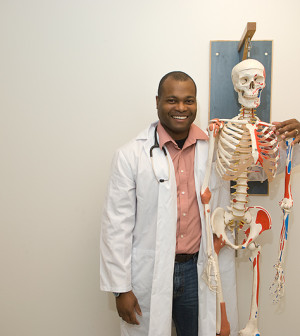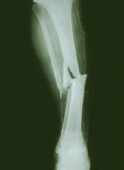- Could Your Grocery Store Meat Be Causing Recurring UTIs?
- Are You Making This Expensive Thermostat Error This Winter?
- Recognizing the Signs of Hypothyroidism
- 10 Strategies to Overcome Insomnia
- Could Artificial Sweeteners Be Aging the Brain Faster?
- Techniques for Soothing Your Nervous System
- Does the Water in Your House Smell Funny? Here’s Why
- Can a Daily Dose of Apple Cider Vinegar Actually Aid Weight Loss?
- 6 Health Beverages That Can Actually Spike Your Blood Sugar
- Treatment Options for Social Anxiety Disorder
Study Finds Kidney Stones Linked to Weakened Bones


Kidney stone patients may be at increased risk for broken bones and may require treatment to protect their bone health, a new study suggests.
Researchers led by Dr. Michelle Denburg, of the Children’s Hospital of Philadelphia, analyzed data from nearly 52,000 British kidney stone patients and more than 517,000 people without kidney stones.
During a median follow-up of nearly five years, kidney stone patients were at significantly higher risk for fractures, and this increased risk affected all bones, Denburg’s team found.
Overall, males with kidney stones were 10 percent more likely to suffer broken bones than those without kidney stones. The risk was highest among male teens — those with kidney stones had a 55 percent higher risk for fractures than those without kidney stones.
Among women, those with kidney stones had a 17 percent to 52 percent increased risk of fractures from their 20s to their 60s, with the highest risk among women aged 30 to 39, according to the study published online Oct. 23 in the Clinical Journal of the American Society of Nephrology.
The findings only point to an association between kidney stones and fracture risk, and do not prove a cause-and-effect relationship. However, the researchers believe that efforts to boost kidney stone patients’ bone health might help shield them from fractures.
“Given that the median time from diagnosis of [kidney stones] to fracture was a decade, we might be able to intervene during this interval to reduce the burden of future fracture,” Denburg said in a news release from the American Society of Nephrology.
More information
The U.S. National Institute of Diabetes and Digestive and Kidney Diseases has more about kidney stones.
Source: HealthDay
Copyright © 2026 HealthDay. All rights reserved.










